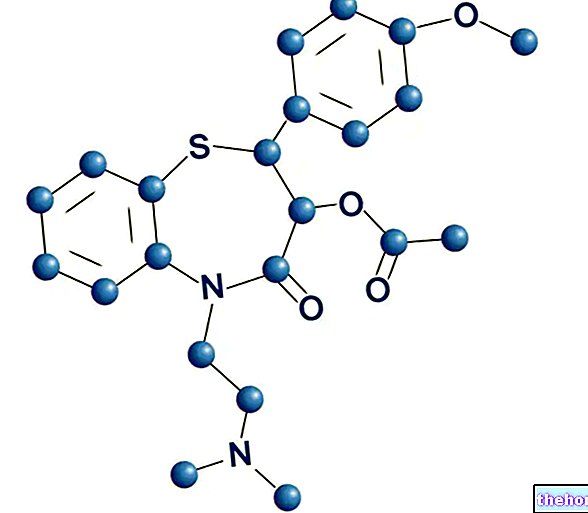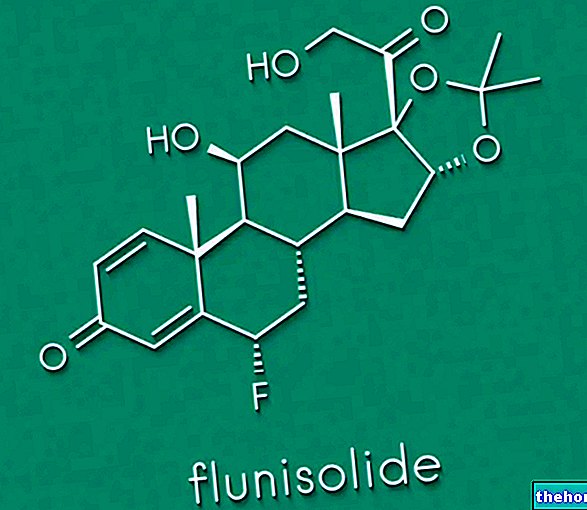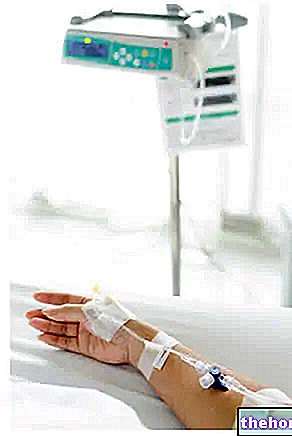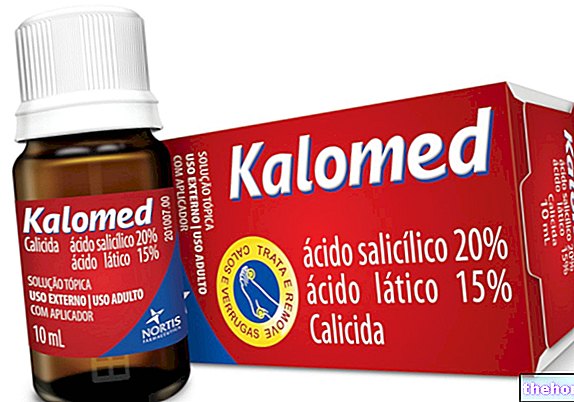IGROTON ® is a drug based on chlorthalidone
THERAPEUTIC GROUP: Diuretics / Diuretics with minor diuretic action, thiazide-like.

Indications IGROTON ® Chlorthalidone
IGROTON ® is indicated in the treatment of oedematous conditions due to heart failure, renal failure, hepatic failure, premenstrual syndrome and idiopathic forms.
IGROTON ® can be used alone or in combination with other antihypertensive drugs in the treatment of hypertension.
Mechanism of action IGROTON ® Chlorthalidone
IGROTON ® is known to be a long-acting diuretic. This reputation is justified by the slow pharmacokinetic properties typical of chlorthalidone. The aforementioned active ingredient, in fact, is absorbed for half the dose from the gastrointestinal tract in about two and a half hours. , to reach maximum blood peaks around the twelfth hour and be eliminated, mainly by the urinary route, after about 50 hours of persistence in the organism.
The diuretic action is carried out through the inhibition of the sodium / chlorine cotransport at the level of the ascending tract of the loop of Henle and of the initial portion of the distal tubule; this effect is accompanied by an increased secretion of potassium ions and water. To the primary effect, an adaptive effect appears subsequently to be added due to the excessive elimination of sodium, which induces the smooth muscle cells of the vascular walls to exchange sodium with calcium, resulting in a greater excretion of calcium and a reduction in the vascular contraction of sodium. partly responsible for the high blood pressure levels.

Studies carried out and clinical efficacy
1. CHLORTALIDONE, AMONG THE MOST EFFECTIVE THIAZIDES
Hypertension. 2006 Mar; 47: 352-8. Epub 2006 Jan 23.
Comparative antihypertensive effects of hydrochlorothiazide and chlorthalidone on ambulatory and office blood pressure.
Ernst ME, Carter BL, Goerdt CJ, Steffensmeier JJ, Phillips BB, Zimmerman MB, Bergus GR.
Chlorthalidone is today among the most widely used antihypertensive drugs, given the marked therapeutic action expressed even at low doses. An example derives from this study, which compares the hypotensive effect induced by the aforementioned active ingredient with that of other thiazide diuretics, during 8 weeks of treatment. The results show that an average drop in blood pressure was observed in a sample of 30 patients. systolic of about 14mmHg in the group treated with chlorthalidone, and of only 7 mmHg in that treated with other thiazides such as hydrochlorothiazide. In addition to the greater therapeutic effect, the dose of chlorthalidone used was 50% lower than that of hydrochlorothiazide, with a significant decrease in side effects.
2. THE EFFECTIVENESS OF CHLORTALIDONE IN HYPERTENSION
Ned Tijdschr Geneeskd. 2010; 154: A1608.
[Chlorthalidone better than hydrochlorothiazide in hypertension]
Kooter AJ, Smulders YM.
The examination of the literature and of all the data taken from common clinical practice, included chlorthalidone and hydrochlorothiazide, among the most widely used antihypertensive drugs. More precisely, it was observed that hydrochlorothiazide was the most prescribed active ingredient by the medical class, also including in combination therapies. Despite the less widespread application, all the studies seem to agree on the greater efficacy of chlorthalidone, even at low doses, in the treatment of hypertension, and in a more prolonged biological effect, suggesting its use also in combined therapy.
3. CHLORTALIDONE IN COMBINATION: HIGH EFFECTIVENESS
Curr Med Res Opin. 2008 Jun; 24: 1771-9. Epub 2008 May 13.
Clinical effectiveness of low-dose chlorthalidone (6.25 mg) + atenolol combination in stage I hypertensive patients: a multicenter, randomized, controlled study.
Pareek A, Karnik N, Salagre SB, Zawar SD, Joglekar VK, Chandurkar N, Naik GS.
This study conducted on 300 patients shows how the combination of antihypertensive drugs with chlorthalidone at low doses can cause a greater decrease in blood pressure than other therapeutic combinations. The greater efficacy of this combination does not derive solely from the greater antihypertensive activity, but also from a significant reduction of side effects, given the low but functioning dose applied.
Method of use and dosage
IGROTON ® tablets of 25 mg of chlorthalidone: in antihypertensive treatment, dosages of 25 mg / day (one tablet per day) are recommended, preferably taken in the morning. Given the long half-life of the active ingredient, in case of prolonged therapies it is recommended to use a lower maintenance dose than the initial one.
In case of refractory to monotherapy with IGROTON ® it is possible, always under strict medical supervision, to increase the dose, or to combine it with other antihypertensive drugs.
In any case, the adjustment of the IGROTON ® dose should be defined by the doctor, following a careful evaluation of the physio-pathological characteristics of the patient and the severity of his pathology.
IN ANY CASE, BEFORE TAKING IGROTON ® Chlorthalidone - YOU NEED THE PRESCRIPTION AND CONTROL OF YOUR DOCTOR.
IGROTON ® Chlorthalidone warnings
The administration of IGROTON ® as well as for other diuretics, should be preceded and accompanied by a "careful evaluation of the plasma levels of electrolytes. In the event of an electrolyte imbalance and a related symptomatology, it would be necessary to suspend the therapy and provide for balancing the deficiencies. . This monitoring should be more stringent in patients at risk of electrolyte deficiency, such as elderly subjects, patients with persistent vomiting and diarrhea, on digitalis therapy and other similar conditions. In addition, for diabetic or hyperuricaemic patients, monitoring would also be necessary. constant blood glucose and uric acid levels, given the ability of chlorthalidone to reduce glucose tolerance and facilitate haemoconcentration processes, potentially dangerous even for patients with liver and kidney diseases.
It is also important to remember that the drug is excreted intact in the urine, as it can cause accumulation side effects in anuric patients and patients with severe renal insufficiency.
There are no known experimental evidences that show a direct effect of chlorthalidone in altering the normal driving ability, but it is necessary to take into account that in case of overdose and electrolyte decompensation, a decrease in perceptive and reactive performance of the patient could occur, exposing him to potential risks.
PREGNANCY AND BREASTFEEDING
IGROTON ® more precisely chlorthalidone, can easily cross the placental barrier and at the same time modify the normal blood flow of organs essential for the correct development of the embryo, first, and of the fetus subsequently. Therefore, it is not recommended to take it during the first trimester of pregnancy, postponing its use later in case of real and inevitable need, and of course under strict medical supervision.
Furthermore, chlorthalidone is secreted intact into breast milk, thus suggesting that breastfeeding be stopped while taking the drug.
Interactions
The hypotensive action of IGROTON ® can be increased by the concomitant administration of:
- Other antipertenisive drugs;
- Alcohol;
- barbiturates and narcotics.
and decreased by non-steroidal anti-inflammatory drugs.
IGROTON ® can instead increase the biological and potentially toxic effect of:
- Lithium;
- Derivatives of curare;
- Antihypertensives.
while potassium excretion, with consequent risk of hypokalaemia and associated symptoms, can be increased by corticosteroids, ACTH, amphotericin and carbenoxolone.
Contraindications IGROTON ® Chlorthalidone
Given the particular pharmacokinetic and pharmacodynamic properties of IGROTON ®, its use is not recommended in case of anuria, renal and hepatic insufficiency, severe cerebral and coronary vascular diseases, hypersensitivity to one of its components, alterations in the electrolyte picture (hyponatremina, hypokalaemia, hypercalcemia ) and metabolic (hyperuricemia).
Undesirable Effects - Side Effects
The recommended dose of IGROTON ® appears to be quite safe and well tolerated, while the incidence of side effects tends to increase as the dose increases.
Given the biological action of chlorthalidone, its side effects are shared with all other drugs belonging to the same pharmaceutical category and determined by:
- excessive action of the drug: due to incorrect dosages or prolonged treatments, and characterized by the induction of an electrolyte imbalance with consequent onset of nausea, vomiting, gastro-enteric affections, muscle cramps, hypotension, vertigo and in the most serious cases even arrhythmias.
- haemoconcentration: with increased serum levels of glucose, lipids, nitrogen, uric acid and greater frequency of gouty attacks in hyperuremic patients;
- hypersensitivity to one of its components, with mainly dermatological reactions.
Note
IGROTON ® is sold only under medical prescription.
The use of IGROTON ® should always take place after consulting your doctor.
The indiscriminate use of IGROTON, among athletes and non-athletes, to search for the loss of a few kilos, exposes the body to serious side effects. Furthermore, it is always advisable to reiterate that weight loss is dictated by the elimination of liquids and salts and not by a real slimming effect, intended as a loss of fat mass.
Therefore IGROTON ® is classified among the DOPING substances.
The information on IGROTON ® Chlortalidone published on this page may be out of date or incomplete. For a correct use of this information, see the Disclaimer and useful information page.




























